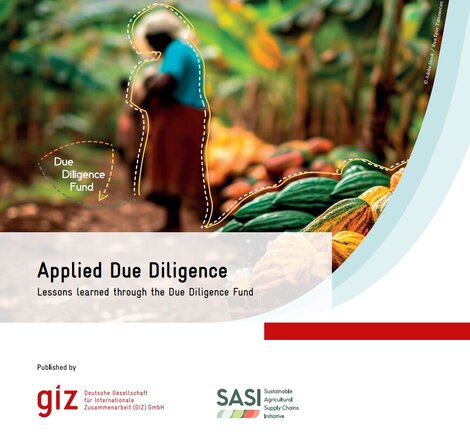Due Diligence Fund
Competitive Fund for the Promotion of Due Diligence

The fifth call for proposals will start in April. Further information on funding round 5 and more on selected projects from round 4 will follow shortly.
The German Federal Ministry for Economic Cooperation and Development (BMZ) and the Sustainable Agricultural Supply Chains Initiative (SASI) are promoting promising approaches to fulfilling corporate due diligence with a funding competition.
Funding through the Due Diligence Fund
Read more about the fund here:
- The focus of DDF is on the core topics of the German Supply Chain Act and the EU Directive on Corporate Sustainability Due Diligence as well as the EU Regulation on Deforestation-free Products.
- Together with the agri-food sector and its suppliers, we want to achieve greater sustainability in global agricultural supply chains and improve the living conditions of smallholders and plantation workers. The focus is therefore on practical implementation on the ground in OECD’s DAC-countries.
- Projects are funded with a sum of 50,000 to EUR 123,000 over a period of up to 15 months.
If you have questions, please feel free to contact us: ddf@giz.de
Which projects are to be funded?

Projects
- that meet the guiding principles of corporate due diligence to a considerable degree and that go beyond the minimum legal requirements;
- whose methodological approach is suitable for scalability adaptation by other companies in the agricultural and food sector;
- which have a particularly high potential to mitigate human rights and environmental risks effectively and sustainably;
- which embed the planned measures in a process-oriented implementation logic and do not only achieve selective effects;
- which promote gender equality through targeted measures.


